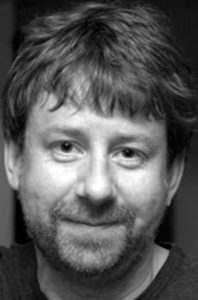In this series of posts, we sat down with a few of the keynote speakers of the 232nd AAS meeting to learn more about them and their research. You can see a full schedule of their talks here!

David Neufeld, Johns Hopkins University
The field of astrochemistry has gained traction with the need to classify and characterize matter in space — such as dust or planets. Using laboratory chemistry and astronomical observations, Dr. David Neufeld seeks to find which molecules make up the matter in space.
Dr. Neufeld, from Johns Hopkins University, points out that “a lot of astronomical analysis really rests on laboratory measurements and fundamental processes. By uncovering more about these through lab experiments, we can discover more properties of astronomical objects.” Additionally, these “observations of molecules can lead to a broader range astrophyscial information.”
Dr. Neufeld has “always been interested in chemistry and astrochemistry,” so his path into academia seemed like an natural continuation of this. When discussing his career Dr. Neufeld says that Dr. Alex Dalgarno played a key role in mentoring him as a student. Dr. Dalgarno pioneered the field of astrochemistry, so his mentoring of Dr. Neufeld was a perfect fit for these researchers.
Dr. Neufeld’s advice for young scientists and students is straightforward: “choose research areas that are absolutely fascinating to you.” He says that “it may seem obvious,” but it is not always easy to follow through on those words.
In his presentation “Small Interstellar Molecules and What they Tell Us”, Dr. Neufeld discussed his research in the field of astrochemistry — in particular which molecular signatures can be found in spectroscopic observations. He hopes that he conveyed that while “some may see molecular astrophysics as niche… it can yield results that are of general use.”
If you’d like to hear more about Dr. Neufeld’s work, check his Research Activities and Publications!

